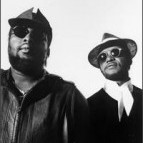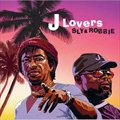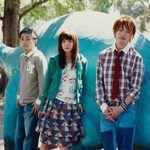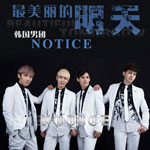by Jo-Ann Greene
Theirs is the ultimate musical marriage, a partnership that, once formed, re-etched the very landscape of not just Jamaican music, but the entire worlds. Such hyperbole is oftentimes rolled out by publicity machines whenever two musical talents come together, but in the case of drummer Sly Dunbar and bassist Robbie Shakespeare, it really was an earth-shattering union. Their rhythms have been the driving force behind innumerable songs — one statistician estimated that together theyve played on approximately 200,000 tracks, and that doesnt count remixes, versions, and dubs. As a production team, the pair has been the equivalent of a creative storm, the cutting edge of modern dub, ragga, and dancehall.
Dunbar and Shakespeare linked in 1975, but by then theyd already become established figures on the Jamaican scene. Lowell Charles Dunbar was nicknamed Sly for his adoration of Sly Stone, and in his teens had begun his career in the late 60s playing in studio bands. For a while he was a member of the RHT Invincibles, a group led by Father Goodun that included such talents as Lloyd Parks, Bertram McLean, and Ansell Collins. The group cut several singles, but none were particularly successful. Dunbar would have better luck with his studio work and made his recorded debut with the Upsetters on the single Night Doctor. Producer Lee Perry was obviously impressed with the young drummer and consistently used him in the studio. Even so, Dunbar continued with his outside interests, joining Skin, Flesh & Bones, a group led by Al Brown that boasted the drummers old compatriot Lloyd Parks. In 1974, the drummer and fellow bandmember Ranchie McLean launched a short-lived label, Taxi, which focused mainly on the groups and its members own material. Meanwhile, Shakespeare was also making a name for himself. He too had launched his career as a sessionman in his teens and by the early 70s was a member of producer Bunny Lees house band the Aggrovators.
Inevitably, the two youths had crossed paths during this period — both were born and bred in Kingston and were only a year apart in age (Dunbar is the elder). Over time, both had worked with virtually all the major (and minor) artists on the island. It was producer JoJo Hookim who eventually brought them together when the two separately joined his studio band the Revolutionaries in 1975. Their partnership grew slowly and their first work together was on Jimmy Cliffs Follow My Mind that same year. The duo then, oddly enough, was also asked to produce the established French singer Serge Gainsbourgs 1975 album Aux Armes et Cætera. It was a bizarre pairing for all concerned, but the sessions went so well that the duo not only produced the singers next album, they also agreed to accompany him on his French tour.
1976 was even more dramatic. Sly & Robbie oversaw Cultures seminal Two Sevens Clash album, one of the greatest albums of the roots age. The pairs productions were slowly beginning to gain international acclaim, and joining superstar DJ U-Roys backing band for his U.K. tour brought them further recognition. Before the year was out, the duo had also appeared on Peter Toshs Natty Rebel album, inaugurating a four-year relationship that saw them accompany the former Wailer on tours around the States and Europe. Meanwhile, their session work back in Jamaica with Hookim continued apace, while Shakespeare also continued playing with the Aggrovators. However, their rising prominence is made clear by Leroy Smarts 1977 Super Star album, whose musician credits proudly boast Robbie Shakespeare & the Aggrovators and Sly Dunbar & the Revolutionaries. The Heartbeat label has released two compilations that feature the Revolutionaries phenomenal work for Hookims Channel One label. 1989s Hitbound! The Revolutionary Sound of Channel One features some of their most legendary work, with artists like Horace Andy, Junior Byles, the Mighty Diamonds, the Meditations, and Black Uhuru. The Mighty Two, ostensibly a compilation of Errol Thompsons and Joe Gibbs greatest productions, also features the group at their best, backing the likes of Peter Tosh, Dennis Brown, Prince Far I, Culture, and many more. 1978 brought the legendary One Love Peace Festival, where the Revolutionaries accompanied Toshs electrifying performance. The set was recorded for posterity and released in 2000 by the JAD label.
Having worked ceaselessly over the last couple of years, Sly & Robbie had carefully put aside every penny they could. Now they finally had enough to open their own label, Taxi, the name nicked from Dunbars long-defunct first co-effort. A studio needs a house band, and the men built it logically enough around members of the Revolutionaries. The Taxi All Stars (aka the Roots Radics) included guitarist Rad Bryan, percussionist Sticky Thompson, and keyboardists Ansel Collins and Winston Wright. The label was inaugurated with Black Uhurus Observe Life, the start of another crucial relationship. Taxi quickly garnered its first chart hit with Gregory Isaacs classic Soon Forward. From thereon, Taxi was an unstoppable force on the Jamaican scene. The Island compilation Present Taxi showcases a dozen of the labels early singles and includes Junior Delgados masterpiece Fort Augustus and the hit Merry Go Round as well as the Wailing Souls Sweet Sugar Plum and Old Broom, alongside crucial cuts from Dennis Brown, Gregory Isaacs, the Tamlins, former Unique Jimmy Riley, DJ General Echo, and more. Notable omissions include the duos work with Max Romeo and Prince Far I.
Sly & Robbie werent content to merely produce other artists work, however, and the pair continued their outside session work. Before the decade was out, the Riddim Twins, as they were now being called, were providing the pulsing rhythms for albums from such legendary vocalists as Bunny Wailer, the Mighty Diamonds, Jacob Miller, and myriad DJ stars including General Echo, Ranking Dread, and Barrington Levy. And this still wasnt enough for Dunbar, who also released several solo singles and a pair of solo albums, Simple Sly Man and Sly, Wicked and Slick. However, their most crucial work was in conjunction with Black Uhuru, who, throughout this period, had recorded a stream of seminal singles for Taxi — Shine Eye Girl and Plastic Smile among them — which would be gathered up for the groups Showcase album. Across the groups powerful albums — Sinsemilla, Red, and Tear It Up — Dunbars heavy beats and Shakespeares sinuous bass, the heart and soul of the Revolutionaries sound, lie at the core of Black Uhurus music, while the duos throbbing, deeply dread production perfectly twined round the groups own phenomenal vocal performance. This partnership reached an epiphany on 1982s Chill Out, the album that rocketed the Riddim Twins to international renown and took them on a tour opening for the Rolling Stones as part of Black Uhurus backing band.
Meanwhile, as the new decade had dawned, Sly & Robbie inked a Taxi distribution deal with the Island label. Island head Chris Blackwell then hired the Jamaicans to work with avant-garde singer Grace Jones. The results — a sparse, funky, dubby, but robotic sound, led by Dunbars fascination with the new Syndrums — set fire to dance clubs around the world and impacted across the new wave scene. The pairs fascination with dub was also growing, with their first excursions into the genre appearing on the flip sides of singles released in 1981. The following years Crucial Reggae: Driven by Sly & Robbie compiled an albums worth of instrumentals and deadly dubs onto one convenient disc. This was followed in 1985 by the equally devastating A Dub Experience, another bundle of earth-shattering rhythms. Across the early part of the decade, Sly & Robbie worked with a dizzying array of artists, including the cream of the DJ crowd. Frankie Paul, Sugar Minott, Charlie Chaplin, and Half Pint all released seminal cuts overseen by the duo, while their work on Johnny Osbournes 1983 Osbourne in Dub is of particular note.
In 1984, the U.K. CSA label brought together this set with Black Sound Uhurus Love Crisis dub companion, Jammys in Lion Dub Style, which was also remixed by the duo. Even the re-formed Skatalites came knocking at their door and the end result was The Skatalites with Sly and Robbie and the Taxi Gang. Sounds of Taxi, Vol. 1 arrived in 1984, a label sampler of Taxi singles, B-sides, and dubs; a second and third volume would follow over the next two years. The Heartbeat label would later release the Taxi Fare compilation, an excellent entry into the world of Sly & Robbie, while Sonic Sounds Many Moods Of focuses the spotlight on the duos dubs from this period. The pairs close connection to the dancehalls and their ever more experimental electronic sounds, coupled with Dunbars virtual desertion of his drum kit for Syndrums, foreshadowed the rise of ragga, and in reality, Sly & Robbies productions provided the blueprint for the eventual rise of ragga and the digital revolution. This was particularly evident on the pairs own instrumentals, credited to either Sly & Robbie or the Taxi Gang and often titled in reference to Taxi itself — Unmetered Taxi, Taxi Connection, Maxi Taxi, and the witty Rent a Car. Here the pair show off their genius, perfectly welding together rocksteady tempos to a totally contemporary sound. Dunbars mechanized beats were so far afield from what others were creating as to be off the map entirely, while Shakespeares sinuous bass adds a rich organic feel to the sound. Together the two created a style utterly unique, with rhythms taut and menacing enough to rampage through the dancehalls, but still so organic as to hold the roots crowd in its thrall.











